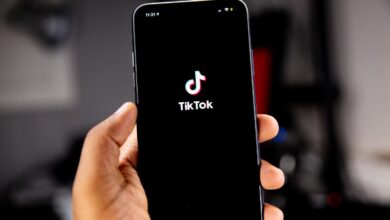Web Ethics, Kim Kardashian, Australian Journalists Association
Without links, there would be no internet. Jonathan Crossfield looks at the right and wrong ways to get more links pointing to your site.
In May 2008, the Sydney Daily Telegraph website carried a short but entertaining news item. It told the rather amusing story of Ralph Hardy, a 13-year-old boy from Texas, who allegedly stole his dad’s credit card and embarked on a $30,000 spending spree, culminating in a motel room party with two hookers, where they played Xbox.
The story was reported around the world. It was carried by the BBC, Fox News, The Sun newspaper in the UK, and many other media outlets, as well as Australia’s News Limited press.
But the whole story was fiction.
An online marketer from the UK admitted on his blog that he faked the entire piece as link bait.
The fictional news item had been created to sit on a client’s website before being submitted to social media networks such as Digg as a news story.
It was from Digg that the mainstream media picked up the story, spreading the deception – and the accompanying link to money.co.uk – across some of the world’s most reputable websites. By attracting a large number of links (over 1500 links within a week), the website’s presence in Google was dramatically increased and website traffic spiked.
There was a heated debate among search engine optimization (SEO) professionals over whether this was a legitimate marketing technique. Online discussion on various blogs and marketing forums soon attracted the attention of Google. The search engine took a very dim view of the practice and penalized money.co.uk to remove any positive effect from all those inbound links.
Google supported its decision by referring to its Webmaster Guidelines. “These quality guidelines cover the most common forms of deceptive or manipulative behavior, but Google may respond negatively to other misleading practices not listed here (for example, tricking users by registering misspellings of well-known websites). It’s not safe to assume that just because a specific deceptive technique isn’t included on this page, Google approves of it.”
Soon after, an apology appeared on money.co.uk. A disclaimer now appears above the news item to distinguish it as a ‘parody’. There is no doubt that the credibility of money.co.uk, a site devoted to professional financial advice, was damaged. What began as an effective trick resulted in bad publicity, an outing on Media Watch, and a humiliating retraction.
So why was a reputable website willing to risk so much for the sake of links?
The weakest link
One of the fundamentals of search engine optimization is encouraging other websites to link back to you. But why should they? Do you provide a strong enough reason for other websites, blogs, forums, and more to include your links?
An inbound link to your site (also known as a backlink) suggests to the reader that the website is worthy of a visit. This is why search engines take notice. Search engines will not count purchased links, as these do not offer the same unbiased recommendation. Also, reciprocal links (where two sites link to each other by friendly arrangement) don’t carry nearly as much weight as a one-way link, despite the practice being extremely common.
If a hundred websites make an independent decision to link to you, that’s one hundred webmasters that made a conscious effort to suggest to their readers that your website is worthy of their attention. Not only do these links, therefore, drive qualified and interested traffic to your website, but they also improve your PageRank and therefore your Google ranking, which in turn can drive still more traffic. More traffic may mean more people also choose to link to you as they discover the wonders of your website. And the cycle continues, snowballing in size until you can’t cope with the volume of traffic.
It is easy to see why webmasters obsess about finding new ways to attract more links. But as money.co.uk discovered, the wrong link strategy can cause more damage than good. Google has always been secretive about how its algorithm processes and assesses links. Policing how people link to each other across the internet is virtually impossible, but Google’s Webmaster Guidelines are quite clear: “Don’t participate in link schemes designed to increase your site’s ranking or PageRank. In particular, avoid links
to web spammers or ‘bad neighborhoods on the web, as your own ranking may be affected adversely by those links.”
So, not all links are made equal in the eyes of search engines. Yet, many webmasters, through ignorance or design, still risk penalties by attempting link-building strategies that breach these guidelines.
Paid links
“Links are a core feature of the web’s architecture, connecting pages with other pages,” explains Chris Chesher, director of the Digital Cultures Program at the University of Sydney.
“Patterns of linking also affect the rankings that search engines give to sites. A site with multiple links of high quality is likely to appear higher in the relevant search pages. A strong link-building strategy will produce a good user experience and, through this, attract value to the organization.”
So, if I need to produce a lot of links, why not simply pay other websites to link back?
There are many online directories and websites that offer to include your link for a fee. Some of these sites sell links on the basis of SEO, charging a fee for the PageRank ‘juice’ the link would pass onto the webpage. Links have become commoditized.
But if backlinks are paid for, then the quality and objectiveness of the votes become suspect. Is the website offering the link because they genuinely feel it is worth the visit or is the link included purely as the result of a financial deal?
“In response to attempts from sites at manipulating this algorithm, search engines have introduced additional techniques and penalties for perceived abuses,” says Chesher.
In 2007, there was a complete collapse in PageRank for many online directories and websites that sold links to pass PageRank. Many online marketers and webmasters soon concluded that Google was targeting paid link acquisition strategies as a negative form of SEO. With Google’s more sophisticated algorithms now able to identify paid or sponsored links, and a manual reporting campaign also underway, it became clear that the search engine giant wanted to remove the influence of paid links from its results.
“Although Google’s primary business is revenue from advertising, its value proposition centers around returning accurate information to user’s search queries,” says Verity Meagher, online marketing manager for Netregistry.
“To secure its enormous market share, Google must continually refine its algorithms to identify cheaters.”
Chesher agrees.
“Google would argue that it is considering the interests of their users in trying to reduce the prevalence of paid links and privileging ‘organic’ links instead. If link algorithms are considered an automated form of editorial control, then Google is exercising that control.”
If a website is discovered to be trading in paid links without identifying them as such, Google will penalize the PageRank of the site. Depending on the severity of the case, Google may even remove the whole site from its index – effectively preventing the site from appearing in any keyword search.
Link relevance
One of the key factors in link building is relevance.
For an animal sanctuary website, a link from a hardware website is not nearly as relevant as a link from a pet shop. Getting all your friends to link back to you may not be such a good idea after all.
But relevance is never black and white. Whether a link is relevant to your site can sometimes be a question of judgment. For example, one of your customers may include your link on her website because she was impressed with your service. But because her website is a different industry (otherwise she wouldn’t have needed your services in the first place), it could be deemed an irrelevant link.
But let’s just think about that for a moment. This is a link by a highly satisfied customer; what could be more relevant than that?
For many years, the relevance of a link was taken from the anchor text. These are the words used to form the link that you click on. This meant those trying to manipulate search engine results through paid links specified their favorite keywords as the anchor text regardless of whether it made sense in a wider context.
Online marketers have begun to notice changes in the PageRank of various websites and this has led some to conclude that the algorithm has been adjusted to lessen the impact of anchor text. Instead, the spiders assess the content on the whole page when deciding on the relevance of a particular link. Context now seems to be growing in importance.
Assessing not only the anchor text of the link but also the context of where it is located, weakens the ability of some to manipulate the algorithm with cynical link strategies. This means webmasters need to work harder to encourage backlinks from websites within their own industry or field rather than merely relying on link farms and directories.
One of the benefits of Web 2.0 has been the ability for content to become ‘viral’ and spread across the net attracting links. Social bookmarking sites such as Digg, Reddit, and Del.icio.us allow content to be found by other interested readers who may then reward the content with further links and traffic. RSS feeds allow content to be syndicated onto other websites, links, and all. Sites such as Twitter thrive on users sharing links and content in a mutual pooling of resources.
“The benefit of social network marketing, above brand awareness, is other quality sites wanting to link to your content,” says Meagher. “That is, as long as your content was informative and valued. Thus, social media can produce the Mecca of links – high-quality, natural links associated with testimonials or quotes.”
Linkbuilding 101: avoid paid link penalties
For legitimate paid link programs, there is an easy way of ensuring Google and the other search engines do not identify your links as an attempt to manipulate PR. By adding a tag to each link, the code tells the Google spiders not to follow the text link. By preventing the link from being calculated into the algorithm, there is no risk of the link being interpreted as manipulation of the algorithm.
This is easily Google’s preferred method of maintaining paid links as a viable form of online advertising without causing conflicts with their system. If you use paid links for advertising, it is important to check that the webmaster in charge of these backlinks adds the ‘no follow tags.
Use social media
Social media covers the myriad ways online users can swap and share content. Whether it is adding favorite web pages to Facebook, submitting and voting for stories on Digg, or including links in a blog post, social media can be highly effective.
If the community likes your content, that is.
Social media relies on the community more than your own actions. Submitting your webpage to Digg does not mean other users will like it and spread it further. Therefore, it is much harder to manipulate and control as it relies on genuine user response rather than marketing manipulation. Chesher sees social media increasing in importance in the future.
“Social media sites are emerging as an alternative to algorithms to sort online content for relevance and value,” he says. “People will recommend and post new links where they perceive them as having value for their peers. Attempts at manipulation of these values are likely to generate indifference, if not hostility.”
This is why social media is increasing in popularity as a way to create strong, natural backlinks. More and more small business websites are incorporating blogs, creating Twitter accounts, or joining online communities to attract more influence from these link-building machines.
Avoid deception
The internet is a powerful beast. It can carry you and your goals a long way, but if the online community realizes it has been duped or misrepresented, it can bite back ferociously.
Social media sites in particular do not respond well to ‘spam’ links. Those who try to manipulate these services are usually banned very quickly and all their links are deleted. The fake news story created by money.co.uk created a huge backlash on social media sites after the truth was revealed. Social media requires honest participation to avoid the community turning against you.
Matt Cutts heads Google’s webspam team and wrote about the issue of fake content on his blog.
“There are plenty of ways to market a site creatively without deceiving anyone. Don’t burn your credibility by using fake stories. It’s a short-term tactic and makes people trust you less in the future.”
Create strong content
“The best advice for website developers is to produce high-quality content and interactive productive values, according to the tastes of the intended audiences,” says Chesher.
One of the biggest uses of the internet is to find answers to questions. Every day, Google services millions of requests for questions such as ‘Why are clouds fluffy?’ or ‘How do I find a decent mortgage?’. If there are common questions within your field of interest, by providing detailed answers within your website, you can attract links as a trusted source for that information.
This strategy works best if there isn’t already an obvious monopoly on the same information. For example, if a major website already carries the same information in greater detail, readers will choose to link to them over you. But if you find a way to approach the subject from a different direction – may be by focussing on particular scenarios or issues pertinent to your target demographic – your information service gains greater value and becomes more link-worthy to the people that matter most to you.
“Providing strong content – succinct, informative, relative and expert advice – defines your site as an authoritative source that other websites will wish to reference,” suggests Meagher. #
Jargon translator
- Algorithm: the specific calculations carried out automatically by each search engine platform to assess the relevance, quality and popularity of every web page to provide the best results for each keyword enquiry.
- Anchor text: the text you click on to follow a hyperlink to another page.
- Back link: a link from another website back to yours.
- Indexing: the initial recognition and listing of a new website or page by the search engines, recording the details into their database.
- Keyword or key phrase: the word or phrase used to trigger a search engine request.
- Link bait: content specifically designed to attract other websites and blogs to link back to it.
- Natural results: results generated by the specific keyword request.
- PageRank: Google’s measure of the importance of a particular web page based on the quantity and quality of links pointing towards it, used as part of the Google algorithm.
- Search engine: online application that lets you enter a word or phrase and returns a list of the most relevant websites that contain your request. Popular search engines include Google, MSN and Yahoo.
- Search engine optimisation: adjusting webpages to increase the chances of appearing prominently in the most relevant search engine results for your product.
- Spiders: digital robots that ‘crawl’ (scan and read) each webpage on the internet within the context of the search engine algorithm.




